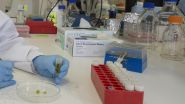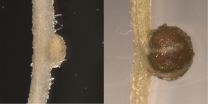In papers released July 9 in New York, international scientists advising UN Secretary-General Ban Ki-moon say closing the gap between developed and developing countries depends on first closing international science, technology and innovation (STI) investment gaps.
According to the UN SG's 26-member Scientific Advisory Board: "While a target of 1% of (Gross Domestic Product) for (research and development) is perceived high by many governments, countries with strong and effective STI systems invest up to 3.5% of their GPD in R&D."
"If countries wish to break the poverty cycle and achieve (post-2015 Sustainable Development Goals), they will have to set up ambitious national minimum target investments for STI, including special allotments for the promotion of basic science and science education and literacy."
The Board also recommends specific investment areas, including "novel alternative energy solutions, water filters that remove pathogens at the point-of-use, new robust building materials from locally available materials, nanotechnology for health and agriculture, and biological approaches to industrial production, environmental remediation and management."
Instituted by the UN Educational, Scientific and Cultural Organization (UNESCO) on behalf of the Secretary-General, the Board is comprised of experts from a range of scientific disciplines relevant to sustainable development, including its social and ethical dimensions.
The Board contributes to a process concluding this fall to replace the UN's Millennium Development Goals, agreed by nations in 2000 for achievement in 2015, with a new set of Sustainable Development Goals (SDGs), through which progress in improving quality of life around the world will be tracked through 2030.
Among other highlights of the papers presented at UN Headquarters:
The Board recommends a dedicated seat for science at an influential new world leaders' forum created to promote and monitor sustainable development - the UN High Level Political Forum on Sustainable Development - saying science needs to be engaged "formally in the HLPF as an advisor rather than an observer."
"This could be accomplished by creating a formal seat for science on the HLPF, and/or by involving the UNSG's Scientific Advisory Board and organizations such as the National Academies of Sciences, UNESCO, ICSU, Future Earth, regional scientific bodies, and others."
The High-level Political Forum meets every four years at the level of Heads of State and Government under the auspices of the General Assembly, and annually under the auspices of the UN Economic and Social Council. The Forum adopts negotiated declarations.
The Board also suggests engaging scientific bodies in reviews of pending policy decisions against scientific evidence.
"The UN Scientific Advisory Board, ICSU (the International Council for Science), National Academies of Science, and other bodies and networks, in collaboration with UNESCO and the UN system, would run a rigorous process of scientific review and assessment identifying possible risks and opportunities related to key political decisions."
In addition, the Board calls for an annual Global Sustainable Development Report - a flagship UN publication like the Human Development Report - that monitors progress, identifies critical issues and root causes of challenges, and offers potential ways forward.
The report would synthesize and integrate findings from a wide range of scientific fields and institutions, developed with strong inter-agency support involving a suggested consortium of UN agencies working on sustainable development.
Needed to support long-term thinking: A better educated, informed world Creating and engaging a better informed and educated public, it adds, would help establish policies that serve humanity's long-term wellbeing over decisions that favour short-term economic and political interests.
The success of STI "will depend on the efficiency of the science-policy-society interface," involving stakeholders from governments, civil society, indigenous peoples and local communities, industry and business, academia and research organizations.
"Such an active cooperation of multiple stakeholders will need more than the occasional by-chance interaction of different groups of society. It will require institutionalized architecture that brings together all affected actors to ensure linking scientific information and data as well as findings, scientific assessments and evidence-based advice with both policy and society."
"Broader societal understanding and support of key scientific findings would make it more likely for science-based actions and evidence-based solutions to also be supported and promoted by decision-makers at all levels."
The Board underlines that science, technology and innovation can be "the game changer" for the future development efforts.
"It can contribute to alleviating poverty, creating jobs, reducing inequalities, increasing income and enhancing health and well-being. It can assist in solving critical problems such as access to energy, food and water security, climate change and biodiversity loss."
INFORMATION:
The papers in full:
Science, Technology and Innovation: Critical Means of Implementation for the SDGs
http://bit.ly/1HfvAz6
and
Strengthening the High-Level Political Forum and the UN Global Sustainable Development Report
http://bit.ly/1eFxuPG
Scientific Advisory Board of the United Nations Secretary-General
The Scientific Advisory Board was created in 2013 at the request of the UN Secretary-General to further inform the debate on sustainable development. The Board is composed of 26 eminent scientists representing all regions and many scientific disciplines relevant for sustainable development: the engineering, political and natural sciences are represented as well as for example oceanic, climate and biodiversity research. In addition, all members of the SAB have extensive and manifold experience with international scientific cooperation as well as the science-policy-society interface.
Board members are appointed in their personal capacity, and not as representatives of their respective States or of any other entities with which they may be affiliated. They will serve on a pro bono basis for a period of two years, with the possibility of renewal for one subsequent two-year term at the discretion of the UN Secretary-General.
Members of the Board
The SAB held its 3rd meeting in Malaysia on 25-26 May, co-chaired by UNESCO Director-General Irina Bokova and Zakri Abdul Hamid, Science Advisor to the Prime Minister of Malaysia. The meeting was hosted by the Malaysian Government and the Malaysian Industry-Government Group for High Technology (MIGHT).

